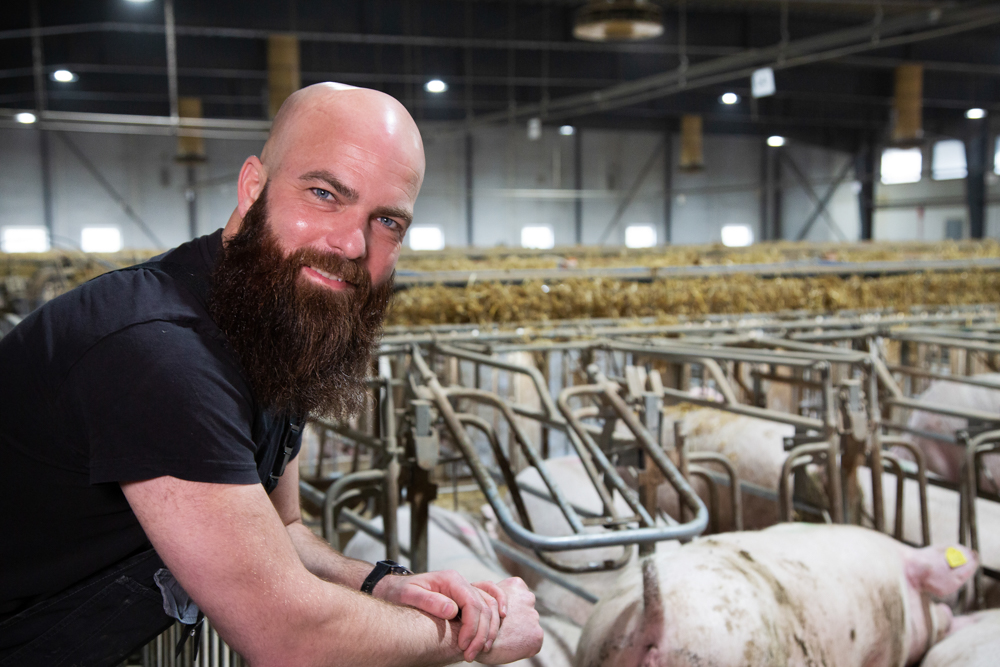A change in feed to change sustainability and bottom line
Healthy animals need less medicine, handling, and expensive feed additives. The animals make better use of the feed and convert it into performance measures like growth or milk production. That’s how healthy animals contribute to a better bottom line.
A Danish farmer that runs six sow farms with more than 9.000 sows needed more stability in the sow in three of the farms herd consisting of 4,000 sows.
Thus, the aim at the farms was to reduce the mortality for the sows, and a more active sow in the farrowing section, which could produce more milk for the suckling piglets.
A game-changer
The three sow farms changed their sow feed strategy in the spring of 2020 and added EP199 – a fermented and functional rapeseed protein added seaweed, from Danish supplier European Protein. At first the EP199 was added to the gestation feed and after three months to the lactation feed. The fermented rapeseed and seaweed feed replaced soy protein by 6% in the gestation feed and 9% in the lactation feed.
The sows need 100 kilos of sow feed less yearly
The fermented complementary protein helps the sow to utilize the sow feed more efficiently.
Less sow feed but better yield
The improved utilization can be registered in lower overall feed consumption or as steady consumption but reduced per piglet produced, as the number of weaned piglets increase per sow.
The sows need 100 kilos of sow feed less yearly, which is attributed to the use of EP199. At one of the farms, the sows feed on liquid feed, and the so-called “soup” is easier to control than before with far less yeast in the liquid feed and a more stable PH-level. The sows have more appetite, and they seek the trough more actively.
At the same time, milk production has been boosted, with the piglets weighing up to a kilo more. This has increased the number of weaned piglets per weaning significantly and the frequency of diarrhoea in the farrowing section has dropped.


